Welcome, dear reader. Another month of 2025 has come and gone—how are you holding up? I hope it was productive and that you made progress on your reading list. But if not, no worries—there’s still plenty of time left in the year! Feel free to share your top picks from this month in the comments below.
Now, let’s dive in!
Henry V: The Astonishing Triumph of England’s Greatest Warrior King by Dan Jones
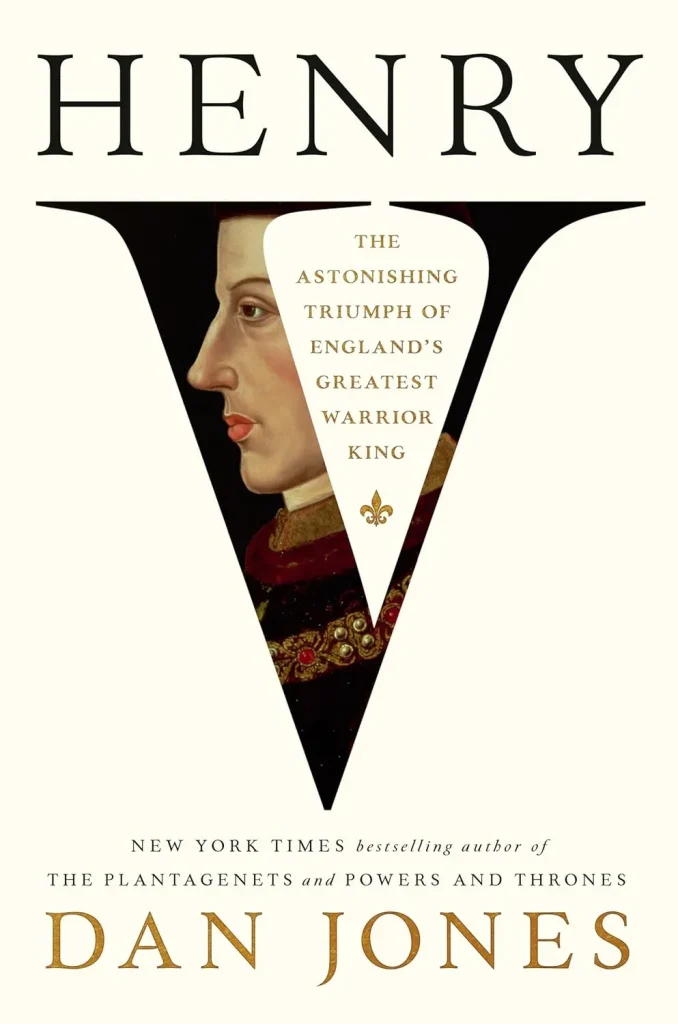
Dan Jones is a brilliant writer who brings history to life, making it engaging and accessible to readers. He is what I would call a “populist” historian—someone who transforms otherwise dry historical material into a compelling, easy-to-digest narrative. His writing style allows readers to immerse themselves in the past without feeling overwhelmed by excessive detail.
Henry V is my first deep dive into 15th-century England—and really, my first serious exploration of medieval England as a whole. My interest in the book was sparked after watching The King on Netflix. Unfortunately, the film takes significant liberties with historical accuracy. If you enjoyed the movie, I highly recommend reading this book to gain a more accurate understanding of the period. It’s always hard to rate books, but I believe that this one deserves a solid 5/5 stars. The material is not too dry and this was a relatively quick read. ⭐⭐⭐⭐⭐
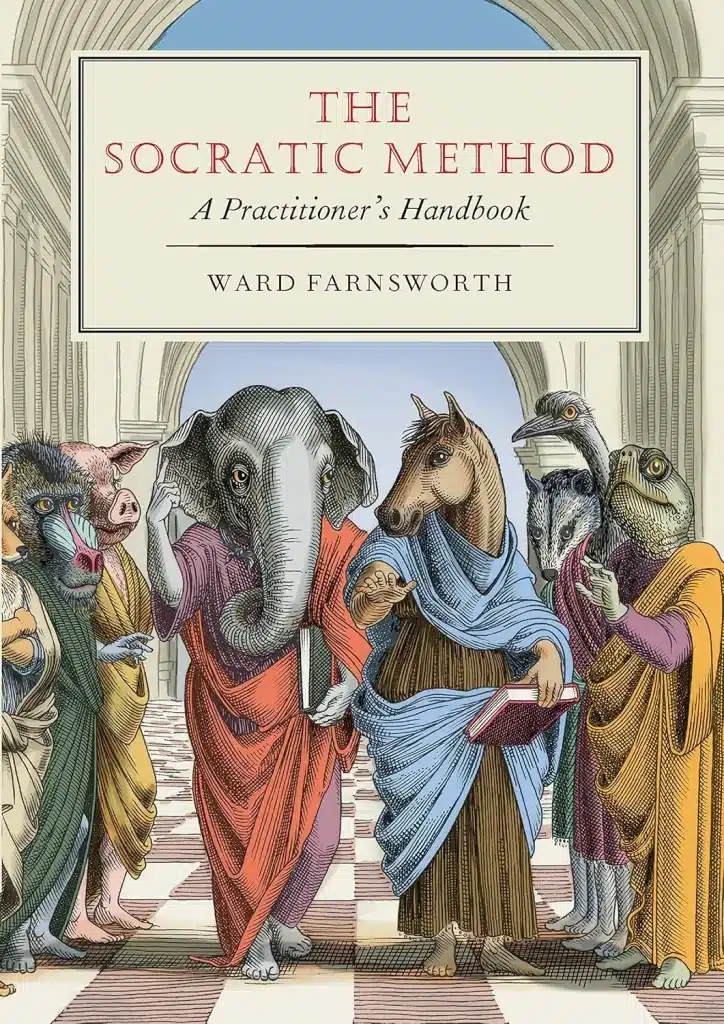
The Socratic Method: A Practitioner’s Handbook by Ward Farnsworth
Rarely do I contribute the “life-changing” axiom to a book. This is one of those books. I have written about the Socratic Method in a previous post, and this title was the impetus for wanting to dive further into the Socratic Method (I mean the book is called “The Socratic Method”). I have practiced Stoicism since late 2019. It has been a philosophy and doctrine that has suited me best. I was pleased to see that Farnsworth goes into similar realms by using the works of Socrates to best explain the method.
Think of this book as a manual of sorts to constructive debate. The Socratic Method is unique in that the goal is not to “win a debate” but to learn more about your partner and their views. This book is beautifully written and is packed with great advice. Farnsworth emphasizes that we should constantly practice the Socratic Method internally; that is, challenge your own thoughts and presumptions to strip bare the fallacies that you may harbour yourself. This book is easily 5/5 stars for me. Read it! ⭐⭐⭐⭐⭐
Emperor of Rome: Ruling the Ancient Roman World by Mary Beard
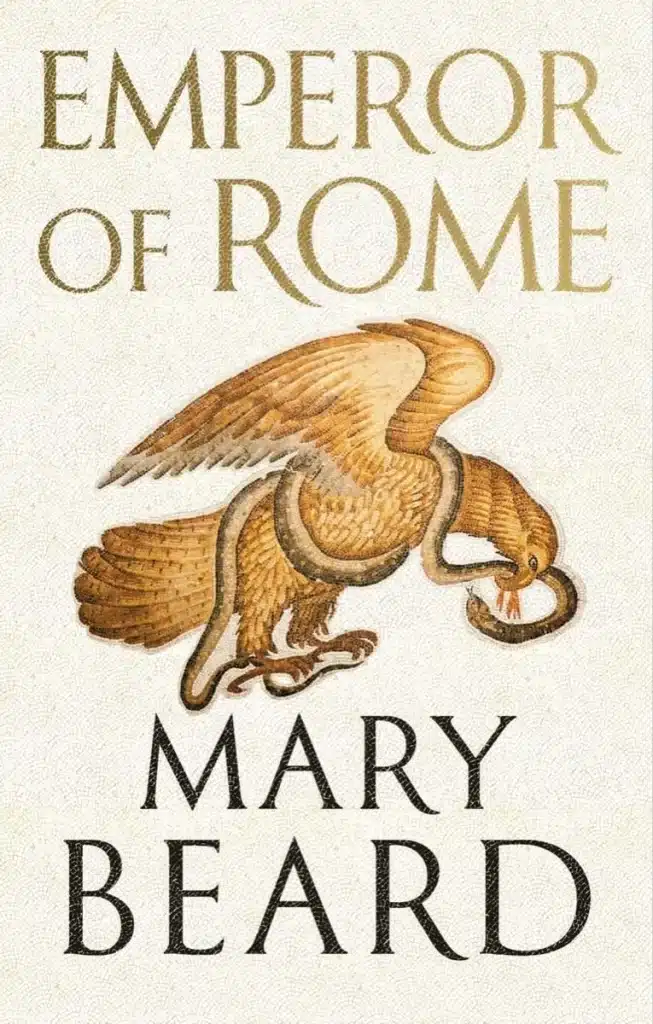
This is the second book by Mary Beard that I have had the privilege of reading. Beard does a great job of mixing historical facts with good insight and readability. Texts about the ancient world can sometimes get bogged down and I didn’t find that the case with this book. Beard takes an interesting approach by explaining some of the factors that went into the day-to-day routine of an emperor from Ancient Rome.
Along the way, Beard examines how the Romans mythologized imperial power, challenging many widely accepted beliefs—chief among them the notion that all emperors were ruthless tyrants. Beard goes further into that notion and, brilliantly, exposes some of the idiosyncratic facts of each emperor. She introduces us to the emperor’s wives and lovers, rivals and slaves, court jesters and soldiers, as well as the ordinary people who sought his favor. These were the citizens who handed him pleading letters, had their chamber pot disputes settled by Augustus, and relied on Vespasian—a tax collector’s son—to approve their budgets.
My best advice is to go into this book with the understanding that it is not a chronological order of ruling emperors; rather, I suggest saving those for individual biographies. 4/5 stars for me. ⭐⭐⭐⭐
Gates of Fire: An Epic Novel of the Battle of Thermopylae by Steven Pressfield
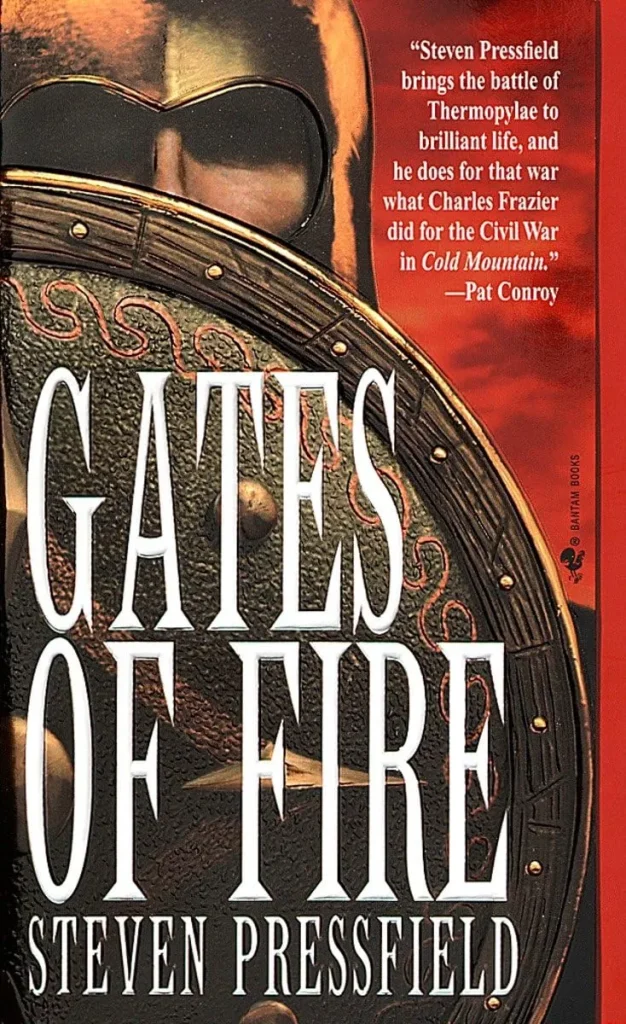
Prepare yourself for action-packed battles and gore! Pressfield is a brilliant writer and this popular novel has been on my list for quite some time. The book is what I would consider historical fiction. Gates of Fire vividly recreates the Battle of Thermopylae, where King Leonidas and his 300 Spartans made their legendary last stand against the Persian army in 480 BCE. Blending historical accuracy with a deep exploration of warrior culture, the novel goes beyond a simple retelling of events to examine themes of honor, sacrifice, and the human spirit in the face of overwhelming odds.
The novel does a great job of humanizing the Spartans. I feel like we always learn about them with the perspective that they are ill-educated barbarians. This is far from the truth and Gates of Fire nails it in this regard!
For those interested in ancient history, military fiction, or the warrior ethos, Gates of Fire is an absolute must-read. It stands as one of the most compelling fictional accounts of Thermopylae and solidifies Pressfield’s reputation as a master of historical storytelling. 5/5 stars for me. ⭐⭐⭐⭐⭐
The Pillars of the Earth by Ken Follett
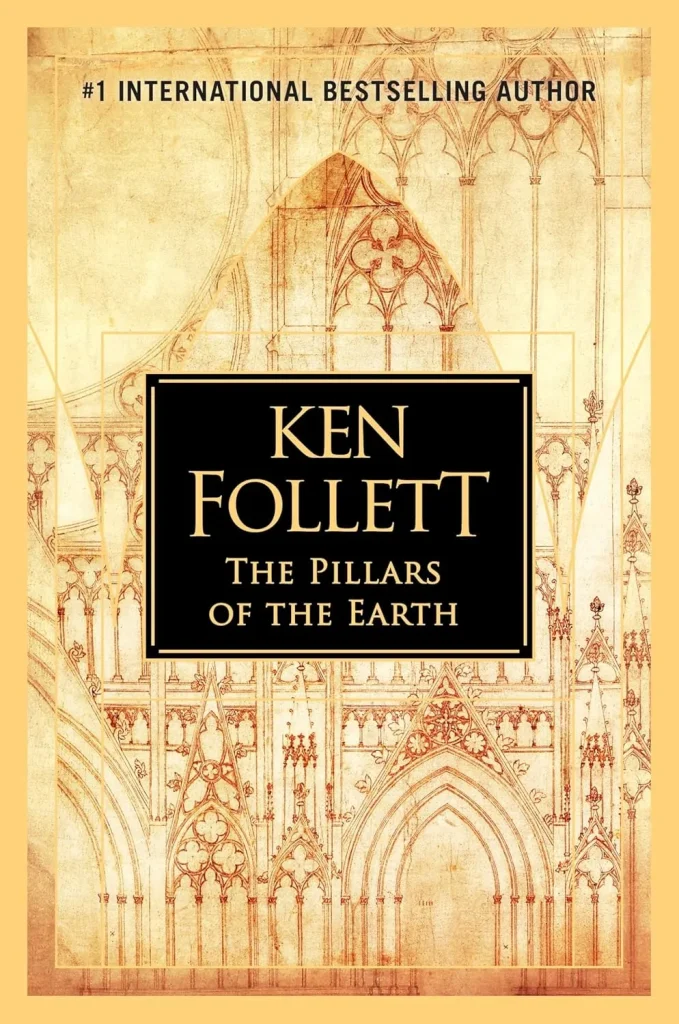
This is one of the best books I have read! I now understand why it is so renowned and recommended in many, many reading lists! To get the elephant out of the way, this book is long. I believe it is almost as long as The Stand by Stephen King. Nonetheless, this is one of those books that should be read by everyone at least once in their lifetime!
The story centers around the construction of a cathedral in the fictional town of Kingsbridge, weaving together politics, religion, and personal ambition. Overall, it’s a captivating blend of drama and history. The book also has many tragic turning points and harsh realities. Follett does not sugar coat things, that’s for sure. Follett excels at creating complex characters, from the noble Prior Philip to the villainous William. The book explores themes like ambition, power, class struggle, and faith, illustrating how these forces shape individuals and society. Follett also gives a vivid portrayal of medieval life, offering insightful commentary on the era’s social and political issues.
Being historical fiction, Follett follows some themes that we see in 12th-century England. The novel also covers the broader medieval period, including the construction of cathedrals and the influence of the church. I easily give this book 5/5 stars! ⭐⭐⭐⭐⭐
The Practicing Stoic: A Philosophical User’s Manual by Ward Farnsworth
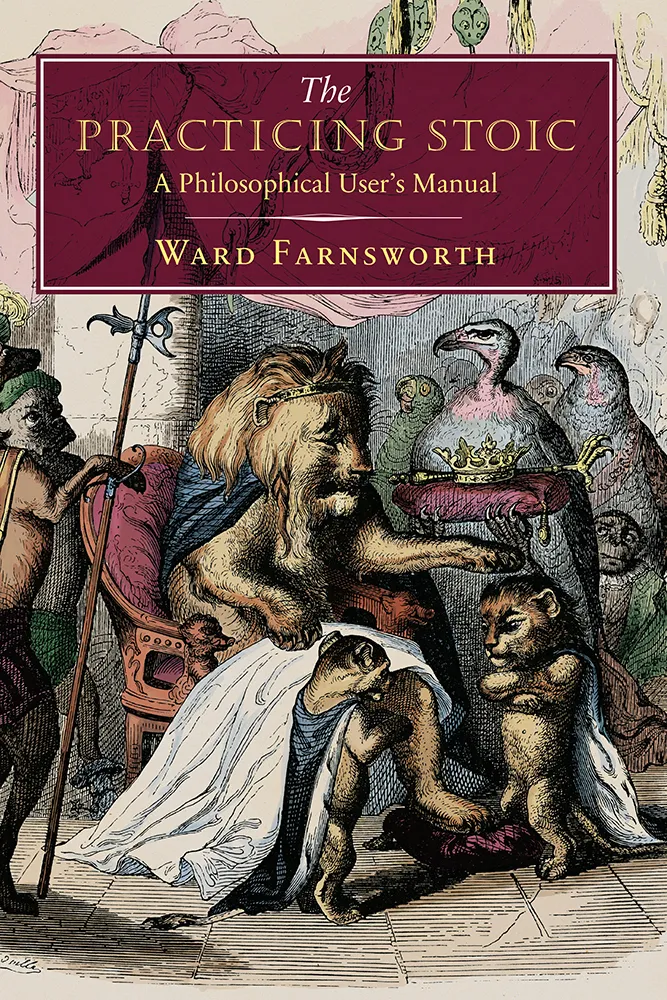
Ward Farnsworth is quickly becoming one of my favorite writers! This is the second book I have read from Farnsworth and I am already on my third (the review of which will most likely be towards the end of this page.) As someone who has been a follower of Stoicism for quite some time, I did find myself skimming over one or two chapters that I did not find worthwhile. However, if I were brand new to the doctrine, this book would be a game changer and I wish I had discovered it when I was new to Stoicism (it had only come out a year prior.)
Farnsworth does pull a lot of quotes and recollections from persons such as Seneca, Aurelius, and Epictetus. Most of the book is the words of these philosophers and not of Farnsworth himself. I don’t think that is a bad thing, but it is something to note when you are going into the book. The author does add commentary with each quote without overcomplicating the material. I can see how that would be off-putting to readers expecting more from the author, but I think it works well here to really understand what the Stoics were trying to teach us.
The last section is devoted to the common criticism of Stoic philosophy. I found the section to be fascinating and thoroughly enjoyed it. I recently published an article on death and how the Stoics taught us to approach it. With all of these things in mind, I think this is a fantastic place to get started with Stoicism. I give this brilliant book a solid 4/5 stars! ⭐⭐⭐⭐
Farnsworth’s Classical English Argument by Ward Farnsworth
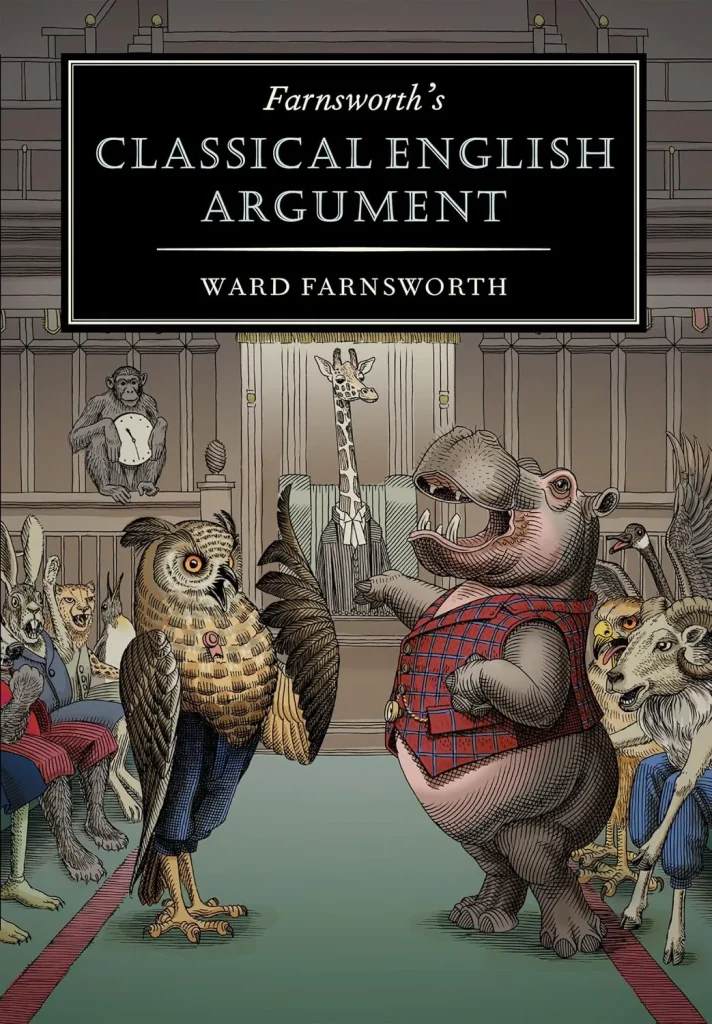
Another fantastic read from Ward Farnsworth! This book is book 4 of Farnsworth’s Classical English series. I have the other three parts on the way from the used book store (yay!)
The book’s concise chapters offer lessons in every aspect of give and take—from the syllogism to the slippery slope, argumentum ad hominem to reductio ad absurdum, fallacies to insults. Ward Farnsworth demonstrates how to use or deflect these techniques, illustrating them with examples that I find fascinating, instructive, and genuinely fun to read.
I liked how short the chapters were in this book, as I felt like I could bite small pieces off and it helped me organize my notes more efficiently. I picked up this series in hopes of having better long-form debate. Classical debate and argument are not my wheelhouse, albeit I considered debate team in high school 😉 My biggest takeaway from this book is how to identify fallacies in an opponent’s logic. I have a ton of highlights and notes from this book, and I will share a few below:
Mill, speech on parliamentary reform (1824)
[the] difficulty of refutation is usually proportional to the
insignificance of the arguments, and it is not easy to reply,
where nothing has been adduced.
Clark, speech in the House of Representatives (1916)
Carping criticism and remediless complaint are both the products of the small brain.
It might be challenging for younger readers who are not adept at long-form debate to find the total usefulness of this text. If anything, I believe that the chapters provide great quotes to pull from as well as references to common fallacies that we experience in the world around us. I give Farnsworth’s book a solid 4/5 stars! ⭐⭐⭐⭐
The Antonines: The Roman Empire in Transition by Michael Grant
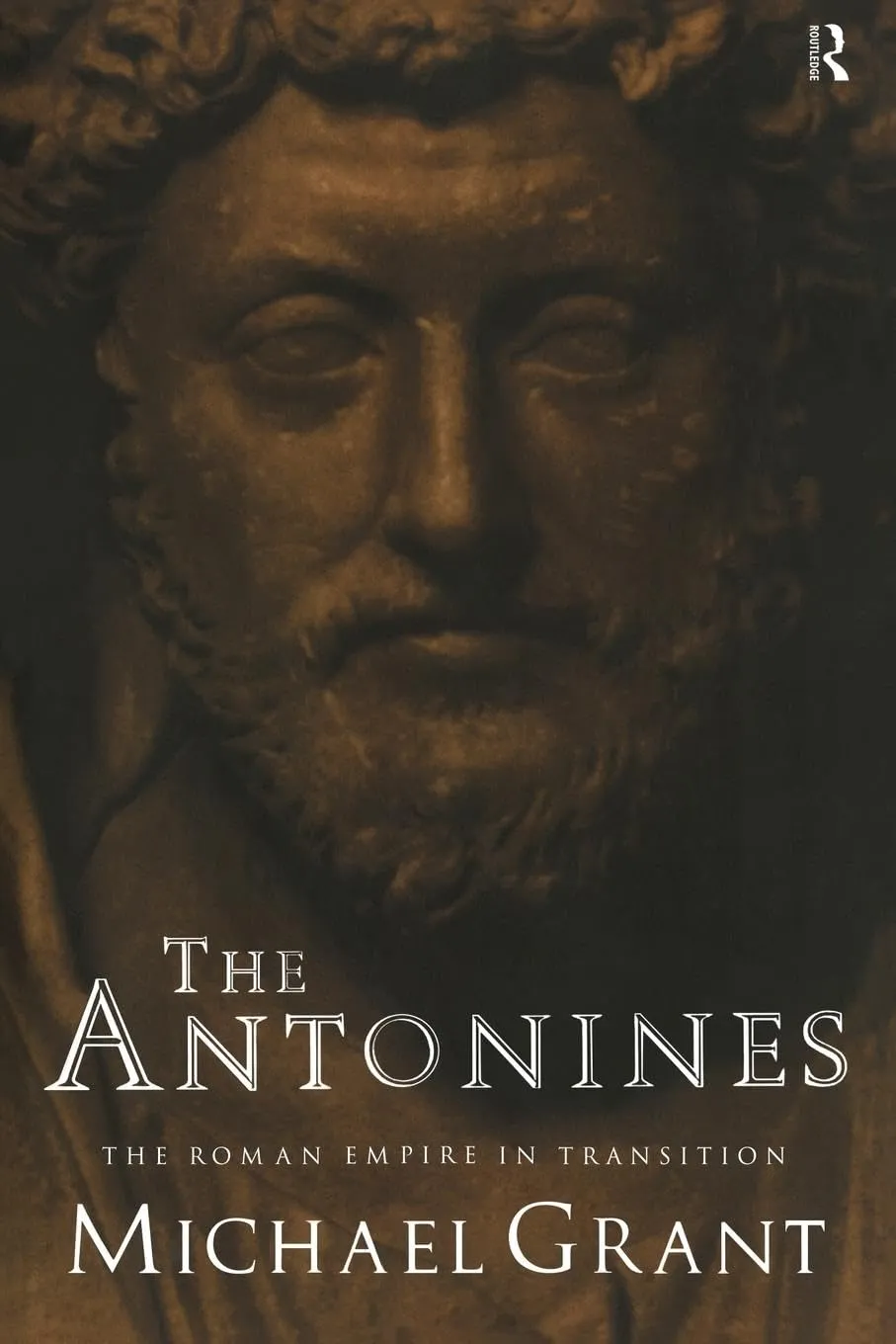
This book was a tough one to get through. I genuinely wanted to like it, but I had several issues with it. The first half wasn’t bad, but it lacked sufficient detail about each emperor of the Antonine period and the policies enacted under their rule. A structured overview at the end of each chapter, summarizing which emperor implemented which policies, would have greatly improved clarity. The final pages took an unexpected turn, introducing a random and untimely comparison between the late Roman Empire and the 1990s European Union. This felt out of place and made for an awkward conclusion.
Moreover, the author overloads the text with an excessive number of names and titles to identify various families, towns, and other details. This forces the reader to repeatedly flip back to determine whether a newly introduced name is actually important to the overall narrative. While some readers might appreciate this level of detail, I found it frustrating after the first few chapters.
Overall, I am not a huge fan of out-of-place context. I see this sometimes in books where authors randomly compare a period, such as Ancient Rome, with some aspects of 20th-century Nazi Germany. It just feels… weird. I give this one a 3.5/5 stars and, sadly, cannot recommend it.
Genghis Khan and the Making of the Modern World by Jack Weatherford
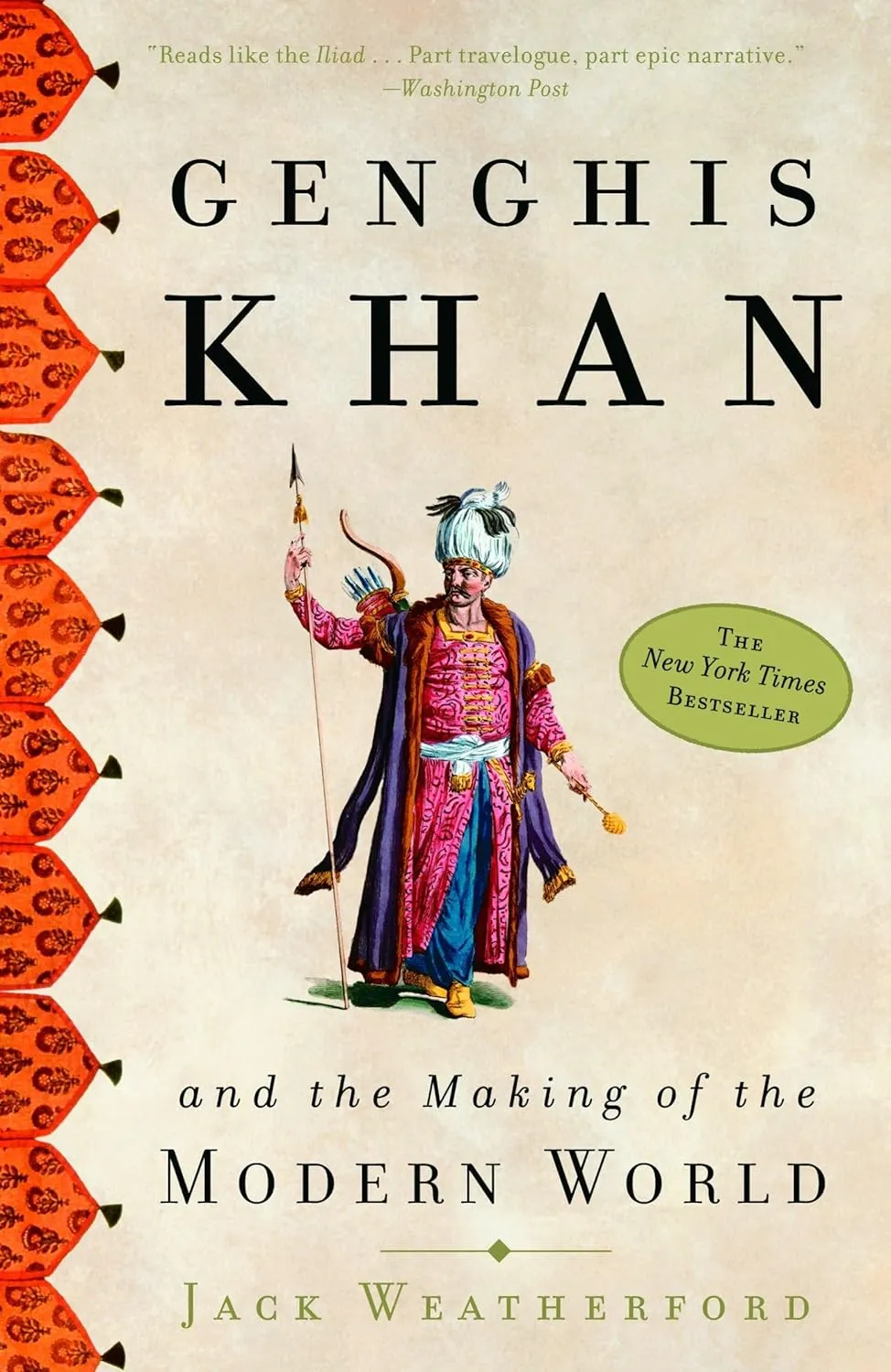
Before diving into this book, I had little prior knowledge of the Mongols or the vast empire they built. With that in mind, I was impressed by how approachable this text is and can see why it has won so many awards. Covering such an expansive empire and timeframe is undoubtedly a challenge for any writer, yet Weatherford keeps the reader engaged and avoids unnecessary fluff that other texts might include.
After finishing this book, I have a much deeper understanding of the Mongols. I’m not sure if this is unique to Western cultures, but in school, I was taught that the Mongols were an unsophisticated and barbaric people. I admit that, as an adult, I never questioned this portrayal until reading this book. Now, I can confidently say the Mongols were quite the opposite—highly sophisticated, with advanced systems of government and societal hierarchies that still influence the world today. I am looking forward to learning more about the Mongols and I feel as if I have a solid foundation to start my historical journey thanks to this text!
Here are some of the key notes that I took from this book
Real birth name was different than the Genghis Khan name that we know of today
The Secret History that survived is accurate?
Rectified the world; make theft illegal and any animals found had to be turned into local authorities.
Would pretend to retreat during sieges and then attack when the gates were open with the inside army looting the battlefield. This clogged the gates.
Khan tried to quickly teach his sons about ruling which confused them more and did not work well. Reminds me of Alexander the Great.
Europeans in the 13th century confused the Mongols as lost/old Jewish tribes and, such, attacked and persecuted them- even making them wear special clothing and emblems to denote that they were Jewish.
The mongols did not like bloody violence for their captors and would sew them into bags and trample them/drown them so that there was no blood or soul to breathe in.
After the death of Genghis Khan, his grandsons eventually fought for the throne. Most notably, Ariq Boke and Kublai Khan- these two eventually started a civil war in which the former was defeated. Thus, Kublai Khan was the first emperor of the Yuan Dynasty. He greatly enhanced laws and legal code, things that we would find very modern in today’s age.
The Nazis tried to translate the writings of the secret Mongol history during World War II. During an Allied bombing, these books were sitting in a box and burnt up, lost history. I also found it interesting that the Soviets exhumed the bodies of some Mongol descendants.
I give this book a solid 4/5 stars! ⭐⭐⭐⭐
Thanks for stopping by!
March yielded a week of Spring break from school, meaning I had more time to write and read. I was happy to get through some books that have been on my to-be-read list for quite a while. I will see you all again in April! Please let me know in the comments below if you get around to reading any of these books as well as your thoughts on them. Be well.
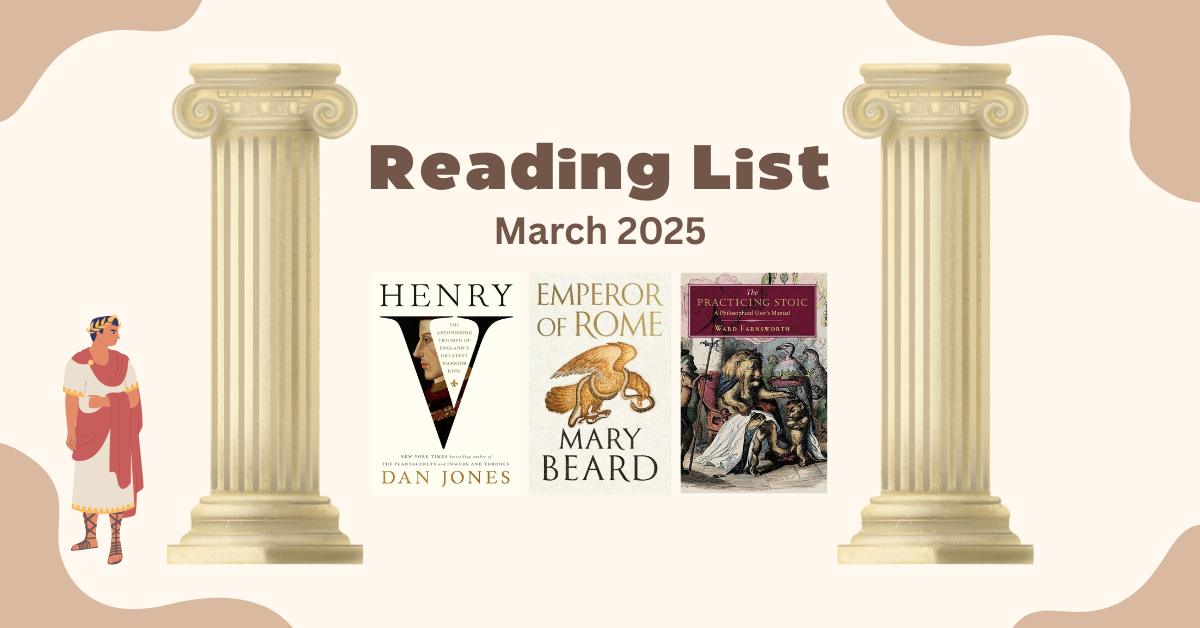

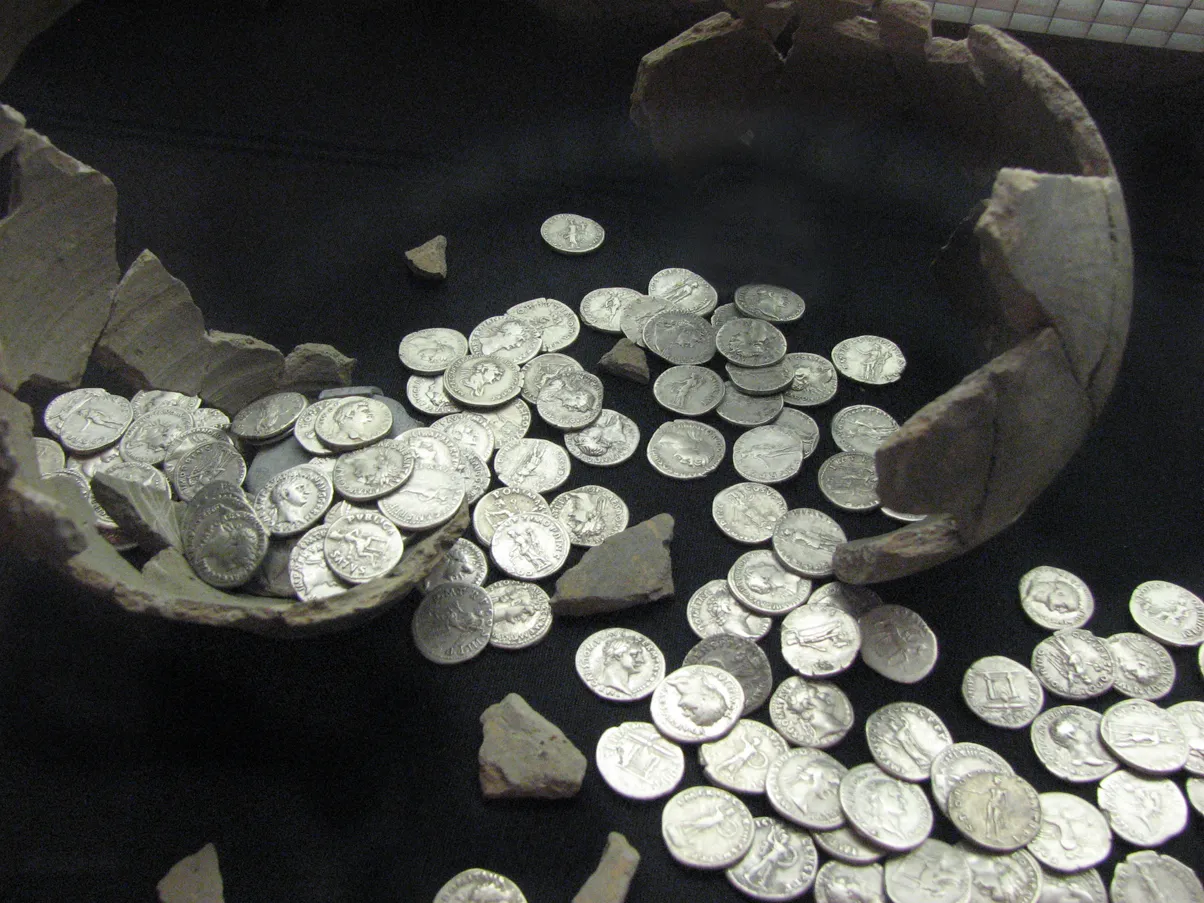
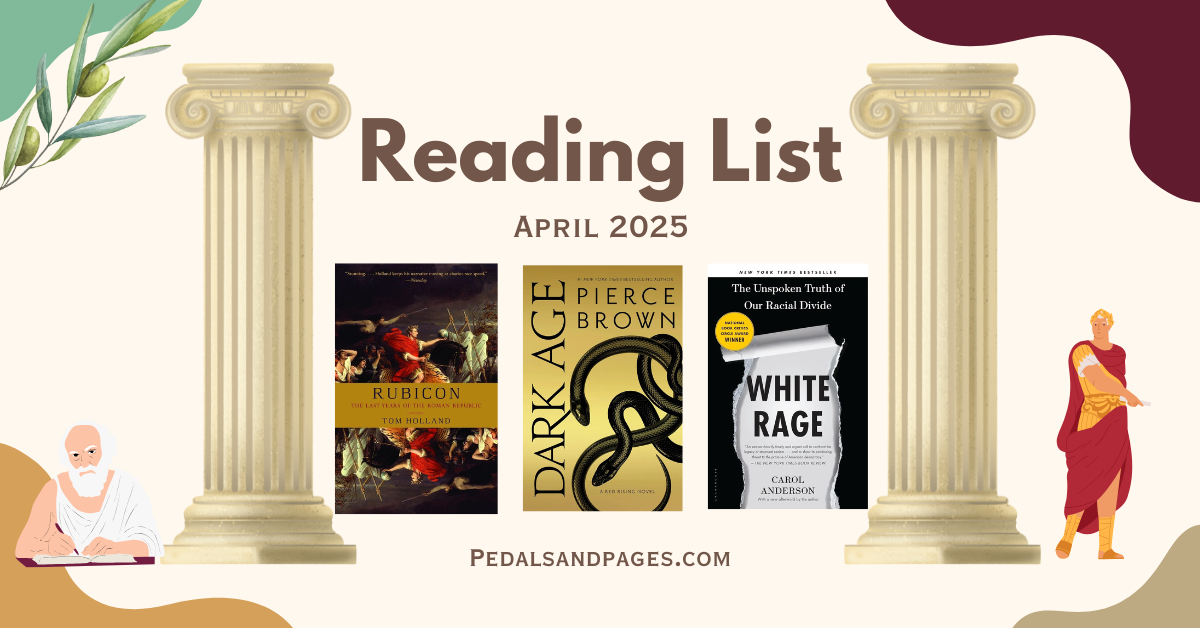
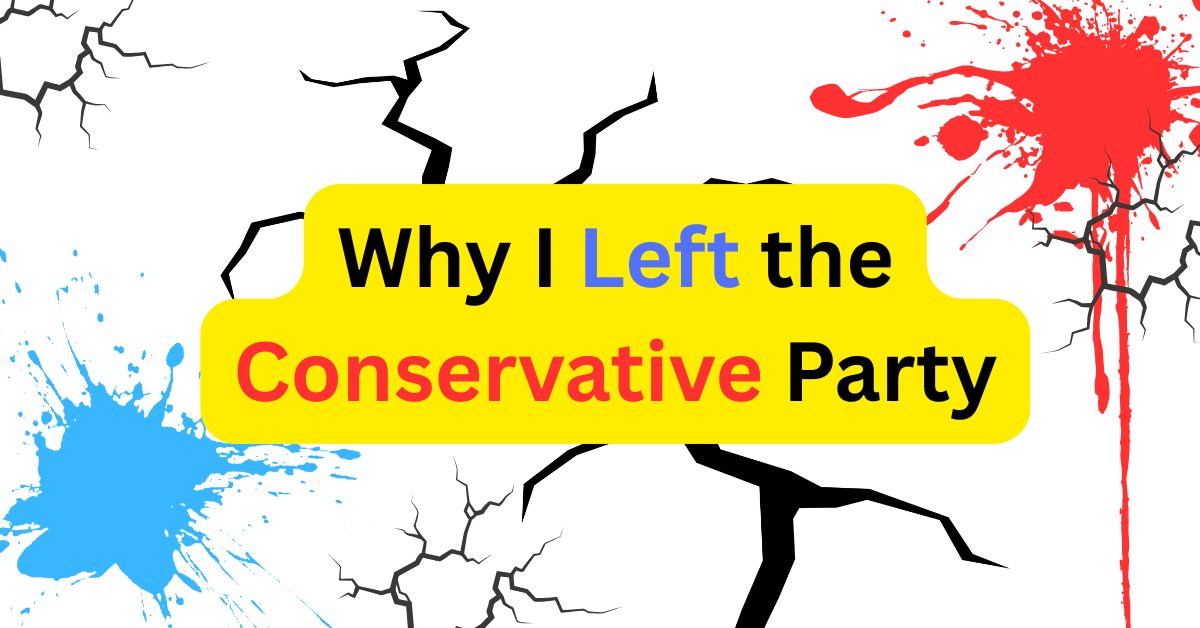
Leave a Reply